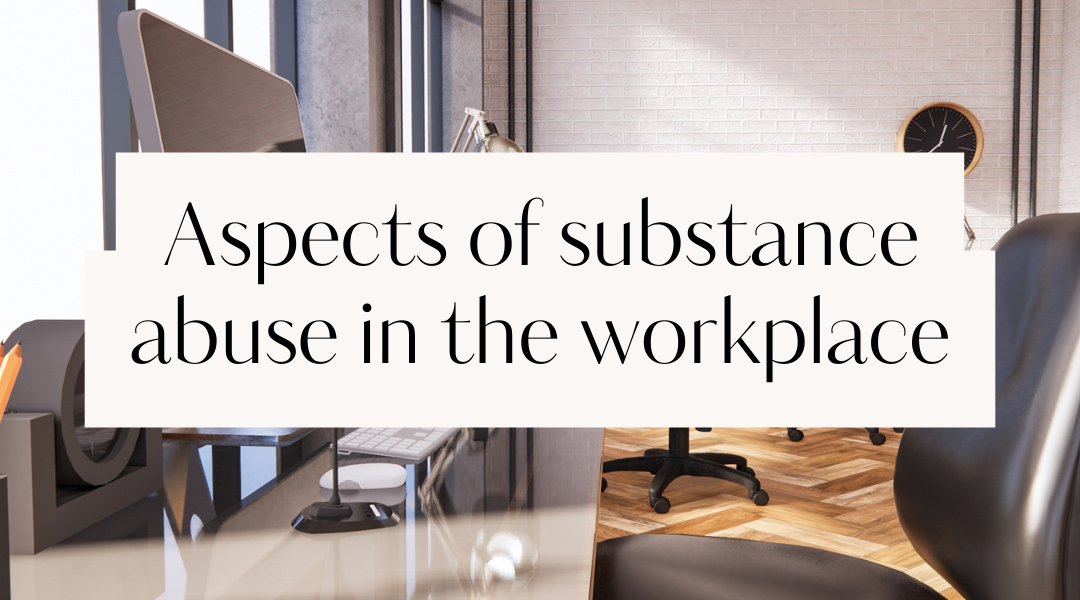Substance abuse affects the daily life in all aspects of a person suffering from addiction and addictive behaviours. This doesn’t stop even when a person is at work/working. The use of substances by employees in corporate and other work environments during working hours has become something that happens more often than you would think. Regardless of drug policy’s at work, drug tests that might be done or even possible risks of being caught. According to drugabuse.com “22.5% of people admit to using drugs or alcohol during work hours. 1 in 4 men admit to using drugs or alcohol in their place of work, while 1 in 5 women say that they have used drugs or alcohol in a professional setting.” Substance abuse and addiction are a huge global concern and very costly to all societies where they occur (Hitzeroth & Kramer, 2010:13; Miller & Weisner, 2002:3). Ignoring or sweeping the matter under the carpet in the workplace can become an occupational hazard. According to the Occupational Health and Safety Act (85 of 1993) Companies including any employer are responsible for managing the negative aspects of substance abuse in the workplace. Addressing the abuse of substances and helping employees or colleagues with substance abuse may benefit the work environment in the following ways: Saving on recruitment costs, as these employees or colleagues remain in the business following treatment. Reducing losses of absenteeism or impaired productivity of employees or colleagues; Creating a more productive environment for all employees. Creating and sustaining a positive moral culture in the office; Reducing the risk of possible injury or harm due to impairments; and Enhancing the public view or reputation of the business as informed and supportive. The International Labour Organisation(ILO)” code suggests that “employees with alcohol or drug related problems should be treated in the same manner as workers with other health problems.” So should an employee be identified or need help with their addiction problem, the employee shouldn’t be discriminated. They should get the benefits offered by their employer. Most organisations have wellness programs but in those that do not, assistance should be provided to the employee to get access to counselling, treatment, and rehabilitation. References drugabuse.com (accessed May 2024) (Hitzeroth & Kramer, 2010:13; Miller & Weisner, 2002:3). Occupational Health and Safety Act (85 of 1993) ILO publication, Geneva. www.ilo.org.za – accessed in May 2024
Read MoreWhy do some people choose to use drugs when they’re so bad for you? The causes of drug addiction are as varied as the amount of drugs that are available for use – both legally and illegally. There is no one cause for drug addiction just like there is no consistent profile of a drug user. People who have a history of drug use or abuse in their families are at risk for drug addiction problems. It has been proven that children of alcoholics will exhibit addictive tendencies. Children of alcoholics or drug users generally have low self-esteem and see their parents escaping from problems using drugs. When they see this, their minds say that this is the way to act and they themselves become users. There is also a biological basis for causing drug addiction. Drugs alter the brain’s chemicals and the way the brain functions. Drug addiction creates dependence in the brain by changing the brain’s reward functions – the part that reinforces certain behaviors. Prescription drug addiction is caused by the person’s inability to function without the drug in their system. People become addicted to prescription drugs because they usually are taking them to overcome some type of pain. They begin to feel that if they are not taking their pills, the pain will return. Some people are more prone to addiction than others. People who have low self-esteem, are often depressed, and who feel they have no control over their lives will often turn to drugs as a way to cope. They often feel they can’t please the people around them so they have to change themselves in order to fit in. The change is made easier by using drugs because the drugs transform them into someone and something that they are not. Stress is often attributed as a cause of drug addiction. Life can be very stressful no matter who you are. Some of us are better able to cope with stress than others. Others still just look for an easy way to forget their stress – and that easy way is through drugs. Once the drug use starts, it’s often difficult to get away from it because the stresses will still be there once the high is gone, so the user feels he or she needs more drugs to cope. That type of cycle leads to addiction. Finally, drugs are easily accessible. They are available in many places if you just ask around for them. Because of that easy access, it’s more likely that a person will begin using eventually becoming addicted. The causes of drug addiction are wide and varied. The key to stopping drug addiction is to get rid of those causes before they become a problem. It is also important to get help when you notice that the drug use is now in control of you or your loved one. At Clearview Clinic we have a team of qualified expects who are available to answer any questions that you may have. We follow a holistic in-patient rehabilitation program for individuals struggling with drug addiction. Call today on +27 12 819 1422 or +27 61 424 1939 (24/7) or email us, for an assessment. Its better now than later!
Read More

